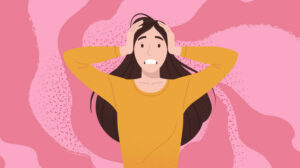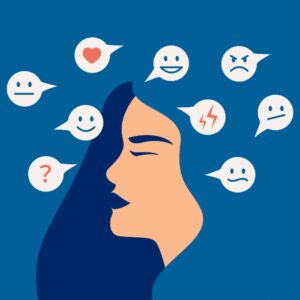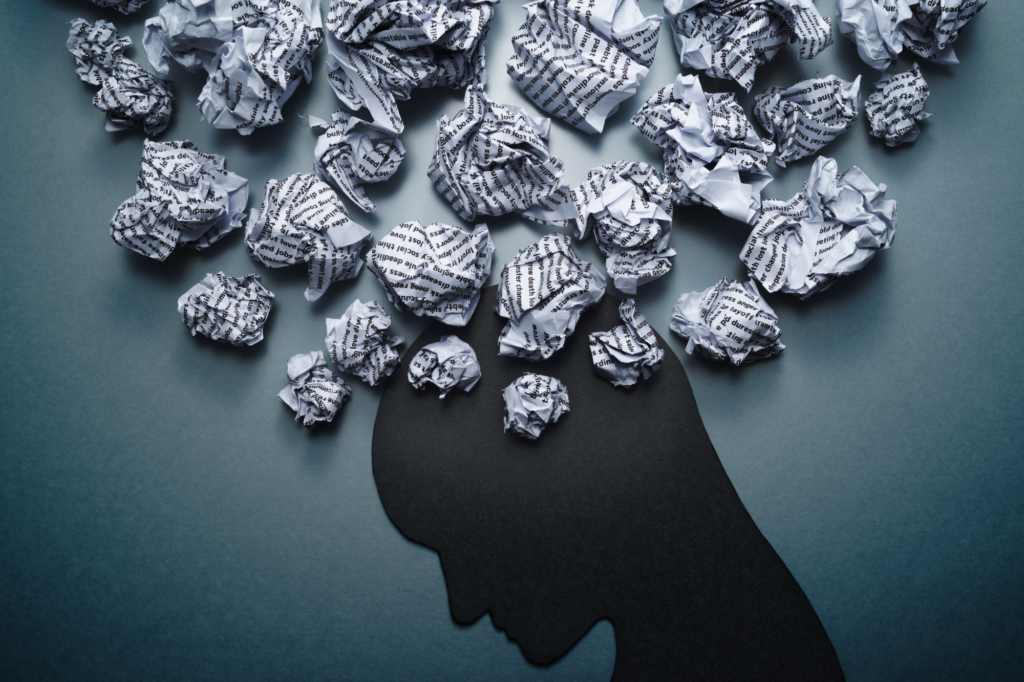Do you have a problem with obsessive-compulsive disorder? If so, you’re not alone. OCD is a very common mental health condition that can cause a great deal of distress. Fortunately, there are ways to address and overcome OCD symptoms. In this blog post, we will discuss some of the best strategies for doing just that.
Contents
What Are OCD Problems?
 OCD means Obsessive Compulsive Disorder. It’s an anxiety disorder where people have obsessions and compulsions. Obsessions are unwanted and intrusive thoughts, images, or urges that repeatedly enter a person’s mind. They cause a great deal of distress and anxiety. Compulsions are behaviors or mental acts that someone feels they have to do to reduce their anxiety. People with OCD often have both obsessions and compulsions.
OCD means Obsessive Compulsive Disorder. It’s an anxiety disorder where people have obsessions and compulsions. Obsessions are unwanted and intrusive thoughts, images, or urges that repeatedly enter a person’s mind. They cause a great deal of distress and anxiety. Compulsions are behaviors or mental acts that someone feels they have to do to reduce their anxiety. People with OCD often have both obsessions and compulsions.
OCD problems that are commonly experienced include:
- Excessive hand washing
- Intrusive thoughts or images
- Needing things to feel “just right”
- Avoiding certain situations or places
These OCD problems can cause significant distress and interfere with daily life. If you are struggling with OCD, know that you are not alone.
Some Examples Of OCD
Compulsions are often time-consuming and can interfere with a person’s ability to function at work, school, or home. They may also cause a great deal of distress. These are some examples:
- Worrying that you will get sick or that someone you love will get sick.
- Constantly checking on things (like if the oven is turned off).
- Avoiding anything that could potentially cause germs (like doorknobs)
- Needing everything to be symmetrical or in a certain order
- Counting or tapping rituals
- Repeating certain words or phrases over and over
- Checking thing excessively
- Hoarding
What Are The Possible Triggers?
Triggers are events or thoughts in our surroundings or minds that cause us to have a specific idea, feel a certain way, or perform a certain activity. OCD sufferers’ triggers frequently elicit an increase in symptoms. Some possible triggers include:
- Stressful life events
- Certain places or objects
- Seeing someone perform a compulsive behavior
- Hormone changes
- Increase fatigue
- Use of certain drugs or alcohol
It is also thought that certain life experiences may trigger OCD symptoms. For example, if you experienced a traumatic event or had a period of intense stress, you may be more likely to develop OCD. There are various types of triggers, and everyone’s triggers are different. If you are struggling with OCD, it is important to identify your triggers so that you can avoid them or be prepared to manage your symptoms.
What Are The Complications?
OCD can cause significant distress and interfere with daily life. It can also lead to other problems, such as:
- Depression: OCD can cause or worsen depression. For example, if your OCD is causing you to miss work or school, you may become depressed.
- Anxiety: Anxiety is a common symptom of OCD. It can cause anxiety and fear. Many people with OCD experience anxiety so severe that it can be debilitating. For instance, people with OCD may avoid public places because they are afraid of having a panic attack.
- Substance abuse: Some people with OCD turn to drugs or alcohol to try to cope with their symptoms. This can lead to addiction and other problems.
- Relationship problems: OCD can strain relationships. If you are avoiding certain places or activities because of your OCD, it can be difficult to spend time with loved ones.
- Trauma: OCD can be a traumatic experience. For example, if you are constantly worried about contracting a disease, you may experience post-traumatic stress disorder (PTSD).
If you are struggling with OCD, it is important to seek help. There are effective treatments available that can help you overcome your symptoms and live a full and enjoyable life.
Can You Overcome OCD Without Medication?

To manage OCD without medications, people with OCD may also find it helpful to practice various techniques. Some people with OCD may also benefit from taking supplements, such as omega-three fatty acids. There are many different types of therapies that can be used to treat OCD. It includes:
- Cognitive-behavioral therapy (CBT): It is a common type of therapy that helps people with OCD identify and challenge the thoughts and beliefs that contribute to their symptoms.
- Exposure and response prevention (ERP): It is a type of CBT that involves gradually exposing oneself to the things that trigger OCD symptoms and learning to resist the urge to carry out compulsions.
- Acceptance and commitment therapy (ACT): It is a type of therapy that helps people accept their thoughts and feelings without trying to change them.
- Mindfulness-based cognitive therapy (MBCT): It is a type of therapy that helps people become more aware of their thoughts and feelings without judging them.
- Self Care: It is important to take care of yourself if you have OCD. This includes getting enough sleep, eating a healthy diet, and exercising. It is also important to find ways to relax and reduce stress.
There are many different ways to treat OCD, and what works for one person may not work for another.
If you are struggling with OCD, know that you are not alone. There are effective treatments available that can help you overcome your symptoms. Do not hesitate to seek help from a mental health professional if you are struggling to cope with
When To Seek Professional Help?
To seek professional help, it is important to find a mental health professional that you trust. You can ask your primary care doctor for a referral, or you can search for a provider on your own. When looking for a mental health professional, it is important to find someone who has experience treating OCD.
OCD is a treatable condition. There are a number of different treatments available, and what works for one person may not work for another. Some people with OCD respond well to medication, while others find that therapy is more effective.
In severe cases, Medication can also be used to treat OCD. The most common type of medication is a selective serotonin reuptake inhibitor (SSRI). SSRIs are a type of antidepressant that can help to reduce OCD symptoms.
OCD can be a difficult condition to live with, but there are treatments available that can help. If you think you might have OCD, talk to your doctor or mental health professional. They can help you get the treatment you need to manage your symptoms and live a full life.
Conclusion
It may be concluded that OCD problems can be addressed and overcome by using different methods. Some people with OCD may find it helpful to practice various techniques, while others may benefit from taking supplements or medications. There are many different types of therapies that can be used to treat OCD, and what works for one person may not work for another. It is important to take care of yourself if you have OCD and to seek professional help if you are struggling to cope.
For further information and suggestions, please contact Therapy Mantra. We have a team of expert therapists that can help you overcome this problem. Get in touch with us right away to learn more about our services. You may also make an online therapy session or download our free Android or iOS app.


